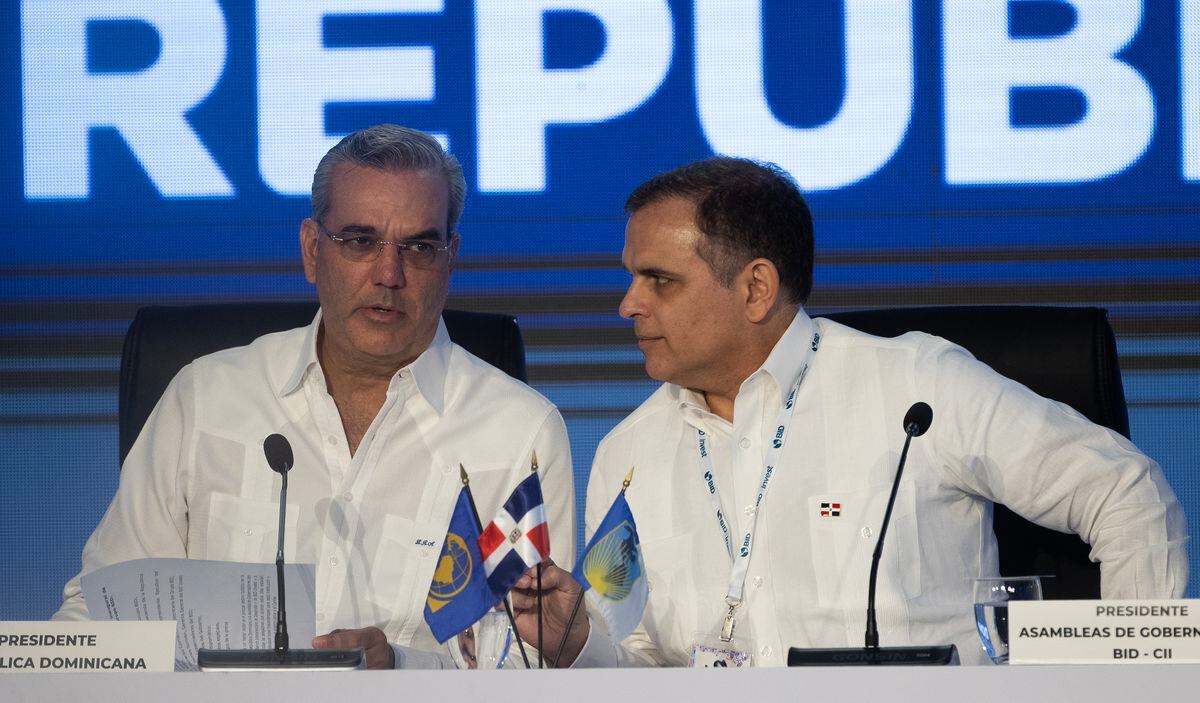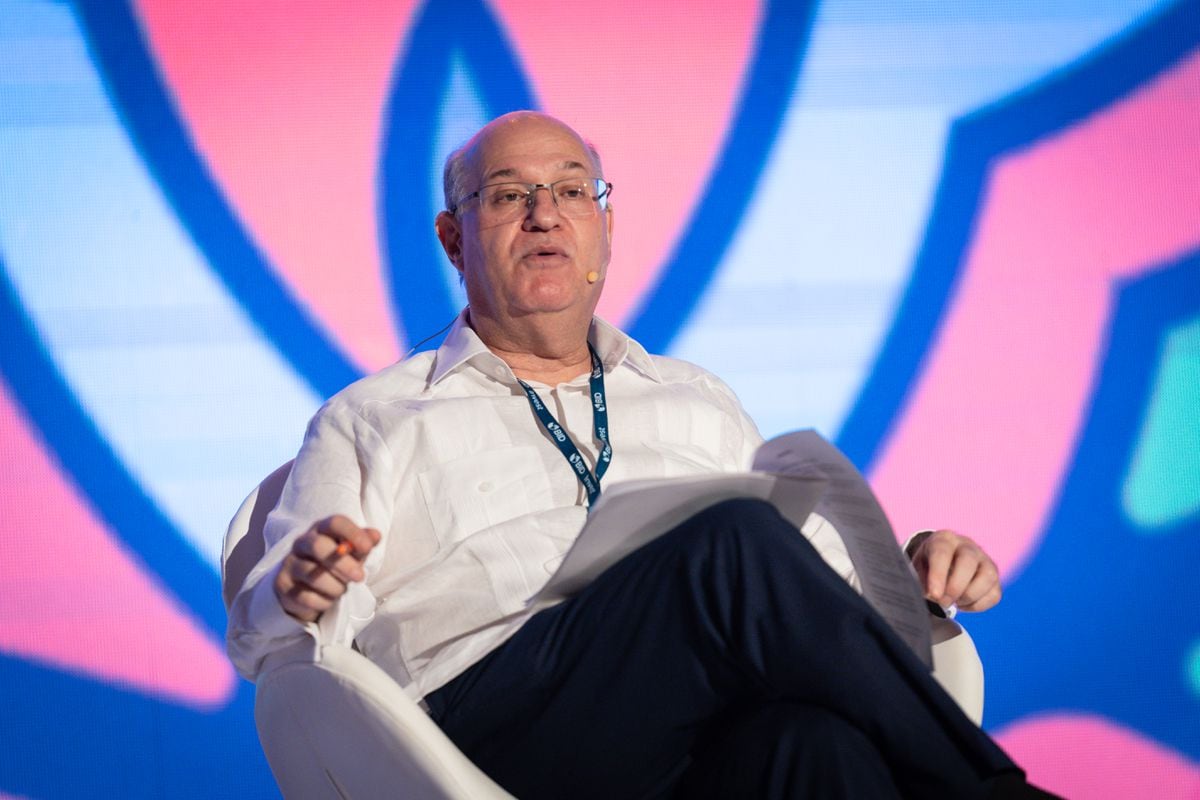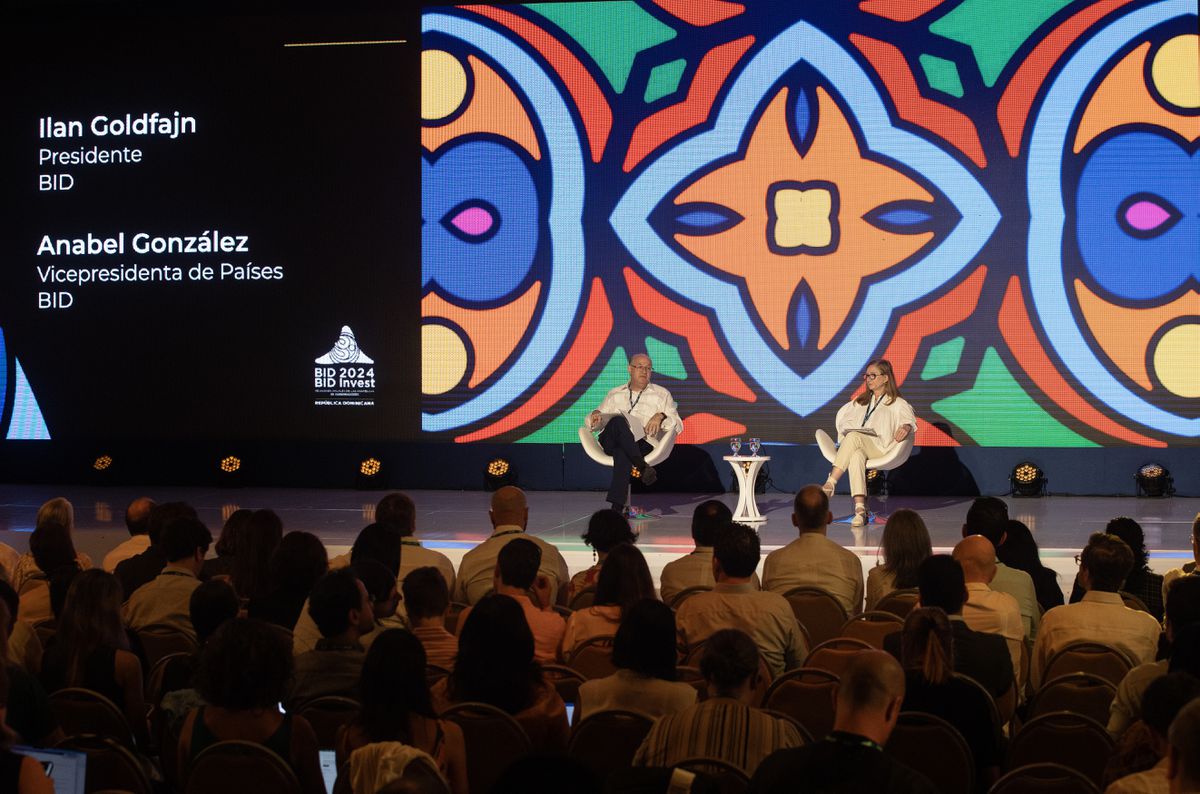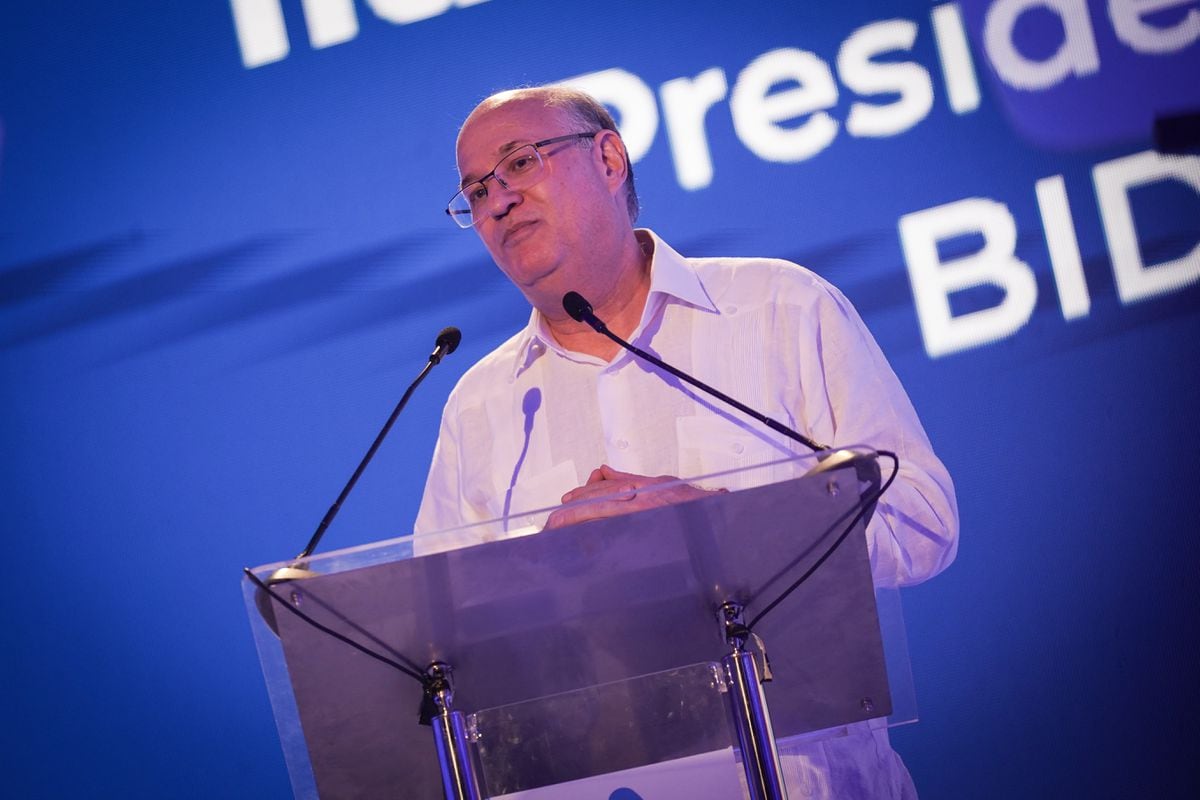To maintain his automatic alignment with the Government of Donald Trump, Brazilian President Jair Bolsonaro ignored the recommendation made by his Minister of Economy, Paulo Guedes, for the presidency of the Inter-American Development Bank (IDB), the most influential multilateral lending institution on the continent. .
Contrary to what the Bolsonaro government claims, Brazil had a candidate for the post of IDB president.
The Ministry of Economy presented the economist Rodrigo Xavier to Caribbean countries in documents that it sent to Caribbean countries.
The texts were recovered by the opposition Socialism and Freedom Party (PSOL) and EL PAÍS has had access to them.
Only in the final stretch of the diplomatic campaign, Bolsonaro decided to listen to the advice of Foreign Minister Ernesto Araújo and accepted the candidacy of the American Mauricio Claver-Carone, who won the post on September 12.
Claver-Carone's victory broke a tradition that had been respected since the bank's founding, 61 years ago, according to which the IDB president must be a Latin American and the vice president, an American.
The Brazilian Foreign Ministry decided to support the White House, one more demonstration of the historic turn of Brazilian diplomacy towards the United States.
In the opinion of foreign policy experts, the alignment has paid off more for Trump's presidential campaign than for Brasilia's interests.
The lack of harmony between Guedes and Araújo has been revealed in two official documents that their ministries sent to the Chamber of Deputies in response to requests for information from the PSOL.
Both portfolios were questioned as to why Brazil supported the American Claver-Carone instead of insisting on Xavier's candidacy, suggested by Guedes in May.
Secret documents
In the responses sent to the Legislature, the ministries declared that the Brazilian's candidacy was never formalized.
But the Economy Minister contradicted himself and presented copies of the letters that were sent to the ministers of five Caribbean countries, in which he presented the name of the Guedes candidate and asked for their support.
The Ministry of Foreign Affairs, on the other hand, used the exceptions provided in the law on access to information to classify the ten communications made with representatives of foreign governments as confidential.
When this type of secrecy is decreed in a public document, its official content can only be discovered after a period of five years.
After the official questioning of the PSOL, at least two of these secrets have been decreed, which has generated mistrust even among the members of three diplomatic representations with whom EL PAÍS has spoken.
The opposition party has filed a complaint with the Federal Prosecutor's Office against Chancellor Ernesto Araújo.
"It is not common to decree secrecy in such simple communications," says one of the Latin American diplomats interviewed.
Another comments that, from the beginning, Araújo's movements seemed to go in the opposite direction to those of Guedes.
"While the representatives of the Ministry of Economy said that we should vote for Xavier, those of Foreign Relations asked us to wait for an American orientation," he says.
Guedes only withdrew the candidacy on June 15, after speaking by phone with representatives of the Trump administration.
On the 16th, the United States presented Claver-Carone, who was elected with the votes of 30 of the 48 countries that make up the IDB.
Alberto Fernández's Argentina withdrew its candidate from the campaign and abstained from voting.
Based in Washington, United States, the IDB's main function is to finance public and private actions aimed at reducing poverty and social problems in Latin America and the Caribbean.
Last year alone, the bank approved $ 11.3 billion in 106 transactions.
Its beneficiaries include public and private bodies.
Its current president, whose term ends this year, is Colombian Luis Alberto Moreno, who has been in office since 2005.
Automatic alignment
The vote for the IDB presidency joins other issues in which, since Bolsonaro assumed the presidency, the Planalto Palace has automatically aligned itself with the international agenda of the Trump administration.
The link has intensified over the past month, as Trump has increased his campaign events and mobilization to try for reelection.
Brazil, in addition to satisfying the interests of the United States by renouncing its own bid for the IDB presidency, has gone against Brazilian producers by agreeing to extend the deadline for importing US ethanol at cheaper tariffs by three months.
Nor has it opposed Washington's announcement that it would cut 80% of Brazilian steel imports.
In a statement, the United States Government also thanked the "productive dialogue" established with Foreign Minister Ernesto Araújo.
Brazil had already agreed to allow Americans to enter Brazilian territory without a visa - even if there was no reciprocity from the United States - and agreed to withdraw from the global migration pact.
“All movements of the Trump administration must take into account his re-election campaign.
It is no different in its relationship with Brazil ”, warns Camila Asano, director of programs for the NGO Conectas.
In the three most recent cases, Guedes recommended Bolsonaro follow a different path from the one he ended up taking.
But he solemnly ignored it.
Pompeo visit
This Friday, Minister Araújo will meet with the US Secretary of State, Mike Pompeo, in Boa Vista, near the border with Guyana.
It is Pompeo's second visit to Brazil, where he was in January last year for Bolsonaro's inauguration.
At this meeting, the secretary will make statements against the Venezuelan regime of Nicolás Maduro.
He will also visit cities in Colombia, Suriname and Guyana, countries that oppose the Venezuelan government.
The background is the support of the Latin American community for the Trump administration for the November 3 elections.
In his Twitter account, the secretary has stated that the visit will be to celebrate democracy and "freedom" in the West.
In Roraima, Pompeo will visit, together with Araújo, the humanitarian assistance centers for Venezuelans from Operation Reception.
The funny thing is that, since March, Brazil has not received Venezuelan migrants due to the covid-19 pandemic.
The two foreign ministers are also expected to discuss the auction for the 5G mobile phone frequency band and the ethanol concessions that Brazil has made to the United States.
“We are facing a counterproductive foreign policy.
It breaks the traditions and does not bring any benefit, neither economic nor soft power ”, considers Camila Asano.
For other analysts, Brazil runs the risk of isolating itself if Trump loses the elections.
"Something that the Brazilian politics of the last two years has taught us is that we can never underestimate the president," wrote Oliver Stuenkel, columnist for EL PAÍS and professor of international relations.
Stuenkel says it would be excellent news for Bolsonaro to take a pragmatic stance if Democrat Joe Biden were elected.
"However, given the Bolsonarist foreign policy so far, we must prepare for a crisis in the relationship with the United States and a growing isolation of Brazil in the West."

/cloudfront-eu-central-1.images.arcpublishing.com/prisa/2NKAFCKARWZZ4LS4JQKHJIFKDU.jpg)

/cloudfront-eu-central-1.images.arcpublishing.com/prisa/2KVLLY26ZNGK3OCBRI676KYGKA.jpg)




